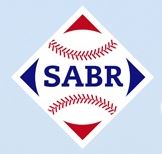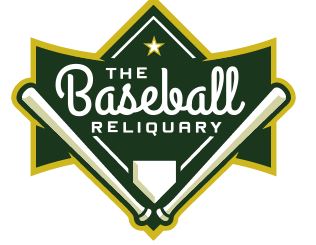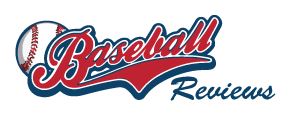Follow @DavidBBRT on Twitter for new post notifications.
It’s official – the Baseball Writers Association of America (BBWAA) Hall of Fame ballots are out and the debate(s) can begin. This year’s traditional ballot includes 15 holdovers from last year, along with 19 newcomers. The basic rules for eligibility are that a player must have played at least ten seasons and be retired for at least five years. A player can remain on the ballot for up to ten years, but must receive at least five percent of the vote in the preceding year’s ballot to remain eligible after the first year on the ballot. Each voter can vote for up to ten candidates. Election requires that a player be named on at least 75 percent of the ballots cast.
In this post, we’ll take a look at how BBRT would vote – if I had a ballot – as well at whom BBRT expects the BBWA to vote in. Notably, BBRT tends to be less stingy then the BBWAA voters. I’ll list a full roster of ten candidates (in order of my preference) who would receive my vote.
Spoiler Alert: BBRT anticipates that four players will be elected. I’m fairly confident about one first-timer (catcher Ivan Rodriguez) and two returnees (pitcher Trevor Hoffman, outfielder Tim Raines). I also think 1B Jeff Bagwell has a very good chance to get the 75 percent necessary (he reached 71.6 percent a year ago), but he may be hurt by the fact that Tim Raines is in his last year on the ballot. Some of the more conservative voters may feel a need to choose between the two. However, I’m including Bagwell on my list of projected inductees. First-timer Vlad Guerrero is my dark horse for 2017. I believe is is HOF-worthy, but BBWAA voters are notoriously tough on ballot newcomers. BBRT note: Last year, BBRT correctly predicted Ken Griffey, Jr. and Mike Piazza would be elected. However, I also incorrectly predicted a third inductee – Trevor Hoffman.
BBRT’s Halll of Fame Ballot – If I Had One – With the Players Listed in BBRT’s Order of Preference.
Group One – Should Be No Doubt
Ivan Rodriguez (C – 1991-2011) – First year on the ballot. Nicknames: Pudge/I-Rod.
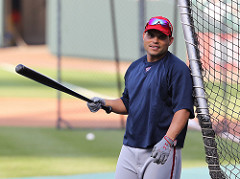
BBRT’s top choice on this year HOF ballot. Photo by Keith Allison 
Ivan Rodriguez played 21 MLB seasons, putting up 2,844 hits, a .296 average, 311 home runs and 1,332 RBI. He was a 14-time All Star, 13-time Gold Glove Winner and won the AL MVP Award in 1999. Notably, his 2,749 hits as a catcher are the MLB record for the position. If any of the first-timers on the ballot capture the necessary votes, it’s likely to be I-Rod – with his combination of leather (13 Gold Gloves) and lumber (seven Silver Slugger Awards). The BBWAA has, in the past, shown a tendency to demand more of “First-Ballot” candidates, but BBRT thinks Rodriguez has the goods and that the BBWAA will agree. Rodriguez played for the Rangers (19991-2002 and 2009); Marlins (2003); Tigers (2004-2008); Yankees (2008); Astros (2009); and Nationals (2010-2011).
Ivan Rodriguez’ best season: In 1999, as a Ranger, Rodriguez hit .332, with 35 home runs, 113 RBI and 116 runs scored in 144 games – earning a Gold Glove, Silver Slugger Award and the AL MVP Award.
Trevor Hoffman (Relief Pitcher, 1993-2010) – Second year on the ballot, 68.3 percent support last year.
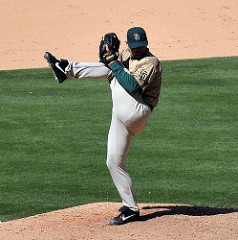
His 601 saves should open the doors to the Hall this year. Photo by SD Dirk 
In BBRT’s opinion, Trevor Hoffman should have been elected in his first year on the ballot. He is one of only two relievers in MLB history to reach 600 saves (601) – trailing only Mariano Rivera (652) all time. Hoffman and Rivera, in fact, are the only closers to reach 500 saves. (Note: Hoffman was also the first pitcher to reach the 500- and 600-save mark.)
Hoffman led the NL in saves twice and reached 30 or more saves 14 times (with a high of 53 in 1998). He had a career record of 61-75, with a 2.87 ERA over 1,089 1/3 innings in 1,035 games – averaging 9.4 strikeouts per nine innings. Hoffman, by the way, made his final All Star team at the age of 41, in a season in which he recorded 37 saves for the Brewers. Hoffman pitched for the Marlins (1993); Padres (1993-2008); and Brewers (2009-10). Hoffman’s 600 saves should be enough for the Hall..
Trevor Hoffman’s best season: In 1998, Hoffman appeared in 66 games for the Padres, converting 53 of 54 save opportunities. On the season, he was 4-2 with a 1.48 ERA, striking out 86 hitters in 73 innings, while walking just 21. He was selected to the NL All Star team, finished second in the Cy Young Award voting and seventh in the MVP race.
Group Two – Debatable, But Clearly Deserving Support (and would have BBRT’s vote)
Lee Smith (Relief Pitcher, 1980-970) – 15th and final year on the ballot, 34.1 percent last year. Note: When the HOF election rules changed from 15-year eligibility to 10-year eligibility, Smith was one of the players already on the ballot to be grandfathered in at the 15-year limit.
BBRT firmly believes Lee Smith has earned his place in the “Hall.” However, last year, Smith got only 34.1 percent of the vote, just a slight increase over his 30.2 percent of the previous year. While BBRT feels Smith has a strong case for the Hall, he’s not likely to make the 40-point leap it will take to get in. But consider his case.
Smith’s 478 saves put him third on the all-time list (he was number-one when he retired after the 1997 season). Smith led his league in saves four times and made seven All Star teams. He recorded ten seasons of 30 or more saves and three campaigns of 40-plus saves. Smith reached 30 or more saves in a season with four different teams (Cubs, Cardinals, Orioles, Angels). He had a 3.03 lifetime ERA and 1,251 strikeouts in 1,289 innings pitched. Smith is also one of only three pitchers with more than 800 games finished lifetime (Mariano Rivera and Trevor Hoffman are the others). Couple all of this with the third most saves all time and Smith gets BBRT’s vote.
Smith pitched for the Cubs (1980-1987); Red Sox (1988-1990); Cardinals (1990-1993); Yankees (1993); Orioles (1994); Angels (1995-1996); Reds (1996); and Expos (1997).
Lee Smith’s best season: In 1991, as a Cardinal, Smith went 6-3, with a 2.34 ERA, 47 saves, 73 innings pitched, 67 strikeouts and just 13 walks (five intentional). He was an All Star, finished second in the Cy Young Award voting and eighth in the MVP balloting.
Mike Mussina (Starting Pitcher, 1991-2008) – Fourth year on the ballot 43.0% last year. Nickname: Moose.
Mike Mussina built a 270-153 record, with a career 3.68 ERA and 2,813 strikeouts over 18 seasons. While only a 20-game winner once (in his final season, at age 39), Mussina won 18 or 19 games five times, leading the AL with 19 wins in 1995. In his first three full seasons in the major leagues (1992-94), Mussina put up a .700 or better winning percentage each year (.783, .700, .762). His record over that span – for the Orioles – was 48-16.
Mussina was a five-time All Star and a seven-time Gold Glove winner. He recorded a .650 or better winning percentage in nine seasons, with a career (and league-leading) high of .783 in 1992. While the lack of a Cy Young Award on his resume may hurt him, he finished his career 117 games over .500 – and history says 100 or more wins than losses should be good for a ticket to the Hall. Mussina appeared in 23 post-season games, with a 7-8 record and a 3.42 ERA. He pitched for the Orioles (1991-2000) and Yankees (2000-2008). BBRT believes Mussina deserves (and will eventually be awarded) a spot in Cooperstown, but is unlikely to close the gap between 43 percent and the necessary 75 percent in this year’s voting.
Mike Mussina’s best season: Mussina may have saved his best for last. In his final season (as a Yankee), at age 39, he recorded his first twenty-win campaign. That year, Mussina went 20-9, 3.37 – and proved his durability by leading the AL in starts with 34, logging his 11th season of 200 or more innings pitched and earning his fifth Gold Glove
Jeff Bagwell (First Base, 1991-2005) – Seventh year on the ballot, 71.6 percent last year.
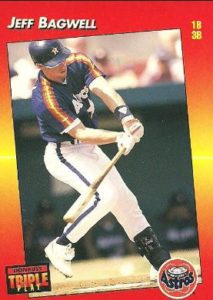
BBRT thinks it should be “Baggy’s” year.
In his 15-season MLB career, Bagwell collected 2,314 hits; smashed 449 home runs; stole 202 bases; and put up a .297 average. He also earned a Rookie of the Year Award (1991); a Most Valuable Player Award (1994); one Gold Glove; and four All Star selections. He twice recorded seasons of 40 or more homers and 30 or more steals. Bagwell drove in 100 or more runs in eight seasons, leading the league with 116 RBI in 1994 and reaching a high of 135 in 1997. He led the NL in runs scored three times, with a high of 152 in 2000. His .297 career average was bolstered by six seasons over .300. Bagwell was also one of MLB’s most durable and dedicated stars, playing in all 162 of the Astros’ games in four seasons and in at least 155 games in ten of his fifteen MLB campaigns. Bagwell, who played his entire career with the Houston Astros, stands a good chance of reaching the 75 percent threshold in 2017.
Jeff Bagwell’s best season: Bagwell won the NL MVP Award, a Silver Slugger and a Gold Glove in 1994, when he hit .368, with 39 home runs and 15 steals. He also led the NL in RBI (118) and runs scored (104) in the strike-shortend campaign. (The Astros played 115 games.)
Tim Raines (Outfield, 1979-2001) – Tenth and final year on the ballot, 69.8 percent last year. Nickname: Rock.
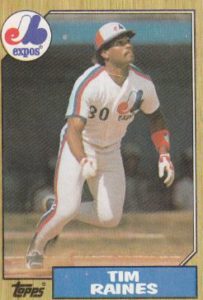
BBRT is predicting (hoping) Tim Raines makes it in his last year on the ballot.
Tim Raines returns for his tenth – and final – year on the ballot. After getting 69.8 percent last year, Raines should gain enough votes for induction in 2017.
Raines hit .294 over his 23-season MLB career, collecting 2,605 hits, 1,571 runs scored, 170 home runs, 980 RBI and 808 stolen bases (fifth all time). He was a seven-time All Star; led the NL in stolen bases four consecutive years (1981-84); had a streak of six seasons with at least 70 steals; won the NL batting title in 1986 with a .334 average; led the league in runs scored twice and doubles once. How much of a threat was Raines on the bases? Over 23 seasons, he averaged 35 steals a year (and that included six seasons in which he played in less than half his team’s games). Over his MLB career – from age 19 to 42 – Raines averaged 52 stolen bases for every 162 games played. In 34 post-season games, The Rock hit .270 with one home run, six RBI, 18 runs scored and three steals. Raines played for the Expos (1979-1990 and 2001);White Sox (1991-1995); Yankees (1996-1998); A’s (1999); Orioles (2001); and Marlins (2002).
Tim Raines’ best season: Despite his 1986 batting title (.334 average), BBRT thinks Raines’ top season was 1983 (Expos) – 156 games, 179 hits, .298 average, league-leading 133 runs scored, 11 homers, 71 RBI, league-leading 90 steals.
Group Three – Get BBRT’s Vote, but Possible BBWAA Reservations are More Understandable
Jeff Kent (Second Base/Third Base/First Base, 1992-2008) – Fourth year on the ballot; 16.6 percent last year.
BBRT believes Jeff Kent is a deserving candidate. Kent holds the all-time MLB record for home runs by a second baseman (351 of his 377 career round trippers were hit while playing second base). He has a healthy .290 career batting average; his 1,518 RBI are 54th all time; and his 560 doubles 27th. Kent, in fact, has nine more career RBI than Mickey Mantle.
Kent was a five-time All Star and the 2000 NL MVP. As primarily a middle infielder, he hit 20 or more home runs in 12 seasons (a high of 37 in 2007) and topped 100 RBI eight times. He hit .276, with nine home runs and 23 RBI in 49 post-season games. Kent has the credentials, but BBRT has a hunch the writers will make keep him on the bench – a couple of Gold Gloves, at this traditionally defense-oriented position, would have really helped his case. Kent played for the Blue Jays (1992); Mets (1992-1996); Indians (1996); Giants (1997-2002); Astros (2003-2004); and Dodgers (2005-2008).
Jeff Kent’s best season: With the Giants in 2000, Kent put up these stats: 159 games; 196 hits; .334 average; 33 home runs; 125 RBI; 114 runs; 12 steals. His performance earned him the NL MVP Award.
Vlad Guerrero (Outfield/Dedsignated Hitter – 1996-2011) – First time on the ballot. Nicknames: Vladdy/Vlad the Impaler.
When your nickname is Vlad the Impaler, you better put up some solid offensive numbers – and Vlad Guerrora did. BBRT’s dark horse candidate for induction this year (the stinginess of the writers with votes for first-timers may hurt him), Guerrero put up a .318 career batting average (2,147 games over 16 seasons), 449 career home runs (including eight seasons of 30+ and a high of 44 for the 2000 Montreal Expos) and 1,496 career RBI. Guerrero had 13 seasons with a batting average of .300 or better (a high of .345 in 2000), 10 seasons of 100+ RBI, six seasons of 100+ runs scored and four campaigns of at least 200 hits. Known (sometimes criticized) as a free swinger, Guerrero actually never struck out 100 times in a season.
In 2002, Guerrero missed joining the 40/40 club by one home run – hitting .336, with 39 home runs, 111 RBI and 40 stolen bases. He led his league in hits once, runs once and total bases twice, while making nine All Star squads and earning eight Silver Slugger Awards – and the 2004 AL MVP Award. Guerrero hit .263-2-20 in 44 post-season contests. Guerrero played for the Expos (1966-2203); Angels (2004-2009); Rangers (2010); and Oriioles (2011).
Vlad Guerrero’s best season: In 2002, Guerrero his .336 for the Expos, leading the NL in hits (206), while bashing 39 home runs, stealing 40 bases, driving in 111, scoring 106 and drawing a career-high 84 walks (versus 70 strikeouts). He also led the NL in total bases with 364.
Edgar Martinez (Designated Hitter/Third Base, 1987-2004) – Fifth year on the ballot, 43.4 percent last year. Nickname: Papi.
We’ve seen some prejudice against designated hitters in past voting, but Edgar Martinez clearly, and expertly, defined the DH role. In fact, in 2004, MLB renamed the Outstanding Designated Hitter Award the Edgar Martinez Outstanding Designated Hitter Award.
In an 18-season MLB career, Martinez was named to seven All Star teams; won a pair of batting titles (hitting a high of .356 in 1995); topped 100 RBI in six seasons (leading the league with 145 in 2000); and scored 100 or more runs five times (leading the league with 121 in 1995). He finished his career with a .312 average; 2,247 hits; 1,219 runs; 1,261 RBI; 309 home runs; and 514 doubles. Martinez played his entire career for the Mariners.
Edgar Martinez’ best season: One of two here, In 1995, Martinez led the league in batting average (.356), runs scored (121) and doubles (52 doubles), adding 29 home runs and 113 RBI. In 2005, Martinez put up a .324 average, 37 home runs, league-leading 145 RBI and 100 runs scored.
Larry Walker (OF, 1989-2005) – Seventh Year on the Ballot, 15.5 percent last year.
BBRT’s tenth – and final – selection, came down to Larry Walker’s three batting titles versus Billy Wagner’s 422 career saves – and it was a tough call. Back to BBRT’s admiration for “lumber AND leather,” Walker’s seven Gold Gloves were the difference maker. If you could cast 11 votes, Wagner would also get a BBRT nod.
Walker played 17 MLB seasons and retired with 2,160 hits, a .313 average and three batting titles. Between 1997 and 2001, he hit .350 or better in four of five seasons. The five-time All Star hit 383 home runs (a high of 49 in 1997) and stole 230 bases (a high of 33 in 1997). Walker’s years in hitter friendly Colorado may be hurting his vote totals, but BBRT believes if you add his Gold Glove defense to a trio of batting titles, you have a Hall of Famer. Walker played for the Expos (1989-1994); Rockies (1995-2004); and Cardinals (2004-2005).
Larry Walker’s best season: In his 1997 NL MVP year (Rockies), Walker hit .366, with a league-leading 49 home runs. He drove in 130 runs, scored 143, rapped 46 doubles (led the league in total bases at 409 and slugging percetage at .720) – and even threw in 33 stlolen bases and a Gold Glove.
___________________________________________
So, there are BBRT’s ten choices. Now, let’s look briefly at the remainder of the ballot – in alphabetical order – since just making it on the ballot deserves recognition.
Casey Blake (3B/1B/OF, 1999-2011) – First year on the ballot.
Blake had a .264 average, with 167 home runs and 616 RBI over 13 MLB seasons. A solid utility player, his best season was 2004, when he hit .271-28-88 for the Indians. Blake played for the Blue Jays (1999); Twins (2000. 2001, 2002); Orioles (2001); Indians (2003-2008); Dodgers (2008-2011).
Barry Bonds (OF, 1986-2007) – Fifth year on the ballot, 44.3 percent a year ago.
No doubt about Bond’s credentials – .298 average, 2,935 hits, MLB-record 762 home runs, 1,996 RBI, MLB-record 2,558 walks. He was also a 14-time All Star, his league’s MVP a record seven times, and eight-time Gold Glove winner. In 2001, Bonds hit .328, with an MLB-record 73 home runs and 177 RBI. And, I could go on. Still, there are those PED’s – and elephant in the room that will keep Bonds out of the Hall. We can expect him back on the ballot next year. Bonds played for the Pirates (1986-1992) and the Giants (1993-2007).
Pat Burrell (OF, 2000-2011) – First time on the ballot.
Bureell hit .253 over 12 seasons, but showed some pop – 292 home runs and 976 RBI over 1,640 games. Burrell, whose nickname was “Pat the Bat,” hit .282, with 37 home runs and 116 RBI for the Phillies in 2002. He had four seasons of 30+ home runs for the Phillies and finished seventh in the 2005 NL MVP balloting. Burrell played for the Phillies (2000-2008); Rays (2009-2010); and Giants (2010-2011).
Orlando Cabrera (SS/2B, 1997-2011) – First year on the ballot.
Cabrera was a two-time Gold Glover at shortstop, who could hold his own at the plate (.272 career average, with 123 home runs and 854 RBI). He also flashed some speed, with 216 steals, including five seasons of twenty or more. His best year was 2003 (with the Expos), when he played in all 162 games and hit .297, with 17 home runs, 80 RBI, 95 runs scored and 24 steals. He played for the Expos (1997-2004); Red Sox (2004); Angels (2005-2007); White Sox (2008); A’s (2009); Twins (2009); Reds (2010); Indians (2011); and Giants (2011).
Mike Cameron (OF, 1995-2011) – First time on ballot.
Cameron was a three-time Gold Glove centerfielder with a bit of speed and pop (278 career home runs and 297 stolen bases to go with a .249 average over 17 seasons). Cameron’s best season was 2011, when he was an All Star for the Mariners, hitting .267-25-110, with 38 steals and a Gold Glove. Cameron playeds for ther White Sox (1995-1998); Reds (1999); Mariners (2000-2003); Mets (2004-2005); Padres (2006-2007); Brewers (2008-2009); Red Sox (2010-2011); and Marlins (2011).
Roger Clemens (Starting Pitcher, 1984-2007) – Fifth time on the ballot, 45.2% last year.
Like Barry Bonds, Clemens has Hall-worthy stats: 354 wins, 4,672 strikeouts, seven Cy Young Awards, 1986 AL MVP. Clemens was a five-time 20-game winner (led the league in wins four times), seven-time ERA leader, five time league leader in strikeouts. Clemens also has 12 post-season wins, with 173 strikeouts in 199 post-season innings. His best season was 1986, when he went 24-4. 2.48 and won both the Cy Young and AL MVP Awards for the Red Sox. Yes, he’s got the numbers, but the PED controversy stands between him and the Hall. Don’t think the BBWAA is ready yet, but he’ll continue on the ballot. Clemens pitched for the Red Sox (1984-1996); Blue Jays (1997-1998); Yankees (1999-2003, 2007); and Astros (2004-2006). .
Carlos Guillen (SS/2B/3B, 1998-2011) – First time on the ballot.
Guillen was a three-time All Star and put up a .285 average with 124 home runs and 660 RBI over 14 MLB seasons. His best season was 2007 (Tigers), when he hit .296, with 21 home runs and 102 RBI. Notably, he was coming off a 2006 season, when he went .320-19-85 for Detroit. Guillen played for the Mariners (1998-2003) and Tigers (2004-1011).
Derek Lee (1B, 1997-2011) – First time on the ballot.
Derek was a first basemen who could flash leather (three Gold Gloves) and lumber (331 career home runs) and – in his prime – a little speed (from 2002 through 2005, he stole 67 bases). Led finished with a .281 career average (15 seasons), 331 home runs and 1,078 RBI. In his best season (2005, Cubs), he led the NL in hits (199), average (.335) doubles (50), slugging percentage .662) and total bases (393). He also had 46 home runs, 107 RBI, 120 runs scored and 15 steals – and he earned a Gold Glove. Lee has a good chance of returning for a second year on the ballot. Lee played for the Padres (1997); Marlins (1998-2003); Cubs (2004-2010); Braves (2010); Orioles (2011); and Pirates (2011).
Fred McGriff (1B, 1986-2004) Tenth- final year – on the ballot – 20.9 percent last year.
Known as “Crime Dog”, McGriff was five-time All Star; who bashed 493 career home runs (led his league twice, hit 30 or more home runs in a season ten times); topped 100 RBI eight times (career total 1,550); and put up a .284 career average over 19 seasons. In 2001, at age 37, he had perhaps his best season – splitting time betweeen the Rays (then Devil Rays) and Cubs – going .306-31-102. McGriff is not likely to get in this time, despite his 493 round trippers (seven more certainly would have helped his case, as would a couple of 40+ HR seasons. First base is just a highly competitive spot when it comes to the HOF. McGriff was a top slugger at his peak (1988-93), but for most of his career more of a steady power source. He played for the Blue Jays (1986-1990); Padres (1991-1993); Braves (1993-1997); Devil Rays (1998-2001, 2004); Cubs (2001-2002) and Dodgers (2003).
Melvin Mora (3B/OF/SS, 1999-2011) – First time on the ballot.
Mora was a two-time All Star, who surprised a lot of people with his .340-27-104 season for the 2004 Orioles. Over 13 seasons, he averaged .277, hit 171 home runs and drove in 754. Mora topped 25 home runs twice, 100 RBI twice and a .300 average twice. His best campaign was the 2004 season already noted. He was also a .400 hitter (six-for fifteen) in nine post season games for the 1999 Mets .He played for the Mets (1999-2000); Orioles (2000-2009); Rockies (2010); and Diamondbacks (2011).
Magglio Ordonez (OF, 1997-2011) – First tie on the ballot.
I expect Ordonez, a five-time All Star, to stay on the ballot for more than one year. Over his fifteen MLB season, Ordonez was a hitting machine – .309 career average, 294 home runs, 1,236 RBI. Further, in his best season (207 Tigers) he led the AL with a .363 average, hit 28 home runs, drove in 139, scored 117, collected 216 hits and smacked a league-leading 54 doubles. Ordonez hit over .300 eleven times, launching 30 or more home runs four times, driving in 100+uins seven times and scoring at least 100 runs four times. He played for the White Sox (1997-2004) and Tigers (2005-2011).
Jorge Posada (C, 1995-2011) First time on the ballot.
Posada is a five-time All Star, who hit .273, with 275 home runs and 1,065 RBI in 17 seasons with the Yankees (solid numbers for a backstop). Perhaps more critical to Posada’s chances for the Hall are his 125 post-season games – .248-11-42 – and four World Series Championships. Then there is also that 2007 season, when he hit .338, with 20 home runs and 90 RBI. I expect he will back on the ballot next year. Posada played his entire MLB career for the Yankees.
Manny Ramirez (OF – 1993-2011) – First Year on the ballot.
Manny Ramirez played 19 MLB seasons, collecting 2,574 hits, a .312 batting average, 555 home runs and 1,.831 RBI. Ramirez was a 12-time All Star and led the AL in average (2002), home runs (2004) and RBI (1999) once each. Ramirez won nine Silver Slugger Awards, including eight consecutive (1999-2006), hit .285 with 29 home runs in 111 post season games and was the 2004 World Series MVP. Ramirez clearly put up HOF-caliber numbers, but two PED-related suspensions will hurt his chances. Not this year, but he’ll be back. Ramirez played for the Indians (1993-2000); Red Sox (2001-2008); Dodgers 2009-2010); and Rays (2011).
Edgar Renteria (SS, 1996-2011) – First time on ballot.
Renteria is a five-time All Star, three-time Silver Slugger winner and two-time Gold Glover. Over a 16-season MLB career, he hit a credible .286, with 140 home runs, 933 RBI and 1,200 runs scored. Renteria’s game also included speed on the base paths. He stole 294 bases, including a high of 41 for the Marlins in 1998. Renteria also hit .252, with three home runs, 23 RBI and nine steal in 66 post season games. He was the MVP of the 2010 World Series (with the Giants), hitting .417 (seven-for-seventeen) with two home runs and six RBI. He’s got a chance to return to the ballot. Renteria played for the Marlins (1996-1998); Cardinals (1999-2004); Red Sox (2005); Braves (2006-2007); Tigers (2008); Giants (2009-2010); and Reds (2011).
Arthur Rhodes (SP/RP, 1991-2011) – First time on the ballot.
If endurance were the key quality, Arthur Rhodes would have a shot at the Hall of Fame. He lasted 20 years in the major leagues – running up an 87-80, 4.08 ERA record, with 33 saves. Rhodes was an All Star – for the first and only time – in 2010 (at age 40). That season, he went 4-4, 2.29, with 50 strikeouts in 55 innings (69 games) for the Reds. His best season may have been 2001, when (as a Mariner) he appeared in 71 games, going 8-0 with a 1.72 ERA and three saves. That season he struck out 83 batters in 68 innings.Over his career, Rhodes took the mound for the Orioles (1991-1999); Mariners (2000-2003, 2008); A’s 2004); Indians (2005); Phillies (2006); Marlins (2008), Reds (2009-2010); Rangers (2011); and Cardinals (2011).
Freddy Sanchez (2B/3B/SS. 2002-2011) – First time on ballot.
Sanchez was a three-time All Star in his ten season MLB career, which was cut short by shoulder and back injuries. Sanchez’ chances to remain on the ballot will similarly cut short by injury. However, it is notable that he retired with a .297 career average, three All Star Selections and the 2006 NL batting title (.344 for the Pirates). His best year was 2004, when he hit an NL-leading .344, with six home runs, 85 RBI, 85 runs scored and 200 hits – as well as a league-leading 53 doubles. Sanchez played for the Red Sox (2002-2003); Pirates (2005-2009); and Giants (2010-2011).
Curt Schilling (Starting Pitcher , 1988-2007) – Fifth year on the ballot, 52.3 percent last year.
Schilling is a six-time All Star, with 216 career wins (three seasons of 20 or more wins) over a 20-season MLB career. He recorded 3,116 strikeouts (three seasons of 300 or more whiffs), led his league in wins twice, complete games four times, innings pitched twice and strikeouts twice. He was also the 2001 World Series co-MVP – and has an impressive 11-2, 2.23 ERA post-season record (19 starts). He is on the cusp for the HOF. However, his outspoken views, Mike Mussina’s 270-win total (likely he will gete in before Schilling) and the lack of a Cy Young Award may be working against Schilling’s vote-getting capacity. His best season was 2001, when he went 22-8 for the Diamondbacks (with a 2.98 ERA). That year, he lead the league in wins, starts (5), complete games (6), innings pitched (256 2/3). He’ll be back for another shot. Schilling pitched for the Orioles (1988-1990); Astros (1991); Phillies (1992-2000); Diamondbacks (2000-2003); and Red Sox (2004-2007).
Gary Sheffield (OF/DH/3B/SS, 1988-2009) – Third year on the ballot, 11.6 percent last year.
Sheffield is a nine-time All Star (in 22 MLB seasons) with 509 career home runs (topped 30 home runs in a season eight times , with a high of 43 in 2000); a 292 career average (hit .300+ in eight seasons); and 1,676 RBI. He also won 1992 NL batting title (.330); topped 100 RBI eight times; topped 100 runs scored seven times. His best season was 1996 (Marlins), when he hit .314, with 42 home runs, 120 RBI, 188 runs scored and 16 steals. Sheffield has the offensive numbers, but defensive questions and the shadow of PEDs are likely to keep him on the outside looking in. He should return fo the ballot. Sheffield played for the Brewers (1988-1991); Padres (1992-1993); Marlins (1993-19998); Dodgers (1998-2001); Braves (2002-2003); Yankees(2004-2006); Tigers (2008); and Mets (2009).
Sammy Sosa (OF, 1989-2007) – Fifth year on the ballot, 7.0 percent last year.
Sosa hit 609 home runs in 18 MLB seasons – winning two HR titles, topping sixty three times and also hitting 50 one year. In the four seasons from 1998 to 2001, Sosa averaged 60 home runs and 149 RBI per season. His career numbers include a .273 average, 609 home runs, 1,667 RBI, 1,475 runs scored and 234 stolen bases (a high of 36 steals in 1993). Sosa was the 1998 NL MVP (Cubs), led his league in home runs twice, runs scored three times, RBI twice. His best season was 1998 (Cubs), when he hit .308, with 66 home runs, a league-leading 158 RBI and league-leading 134 runs scored – and even tossed in 18 stolen bases. So, why is the seven-time All Star not in the Hall? The PED shadow has darkened his chances. He’s very close to being dropped from the ballot, but may gets a small boost this year. Sosa played for the Rangers (1989, 2007); White Sox (1989-1991); Cubs (1992-2004); and Orioles (2005).
Mike Stairs OF/1B, 1992-2011) – First year on the ballot.
Mike Stairs enjoyed a 19-year MLB career, hitting .262, with 265 home runs and 899 RBI. His place on the ballot recognizes his ability to fill a role at the major league level. His best season was 1999 (A’s), when he hit .258, but slugged 38 home runs and drove in 102. In his career, Stairs hit 20 or more home runs six times and topped 100 RBI twice. Stairs played for the Expos (1992-1993); Red Sox (1995); A’s (1996-2000); Cubs (2001); Brewers (2002); Pirates (2003); Royals (2004-2006); Rangers (2006); Tigers (2006); Blue Jays (2007-2008); Phillies (2008-2009); Padres (2010); and Nationals (2011).
Jason Varitek (C, 1997-2011) – First time on the ballot.
A three-time All Star, Varitek caught an MLB-record (tying) four no-hitters. His resume also includes a Gold Glove and Silver slugger Award (both in 2005) and three All Star selections. For his 15-seasn MLB career – all with the Red Sox – Varitek hit .256, with 193 home runs and 757 RBI. His best season was 2003, when he hit .273, with 25 home runs and 85 RBI. In his Silver Slugger/Gold Glove year, he hit .281, with 22 home runs and 70 RBI.
Billy Wagner (RP, 1995-2010) – Second year on the ballot, 10.5 percent last year.
Wagner is a seven-time All Star, who amassed 422 saves (fifth all-time) in a 16-season MLB career. He had nine seasons of 30 or more saves; a career ERA of 2.31; 1,196 career strikeouts in 903 innings; and 47-40 won-lost record. His best season was 2003, when he went 1-4, 1.78 for the Astros, saving 44 games amne fanning 105 batters in 86 inings. BBRT thinks he belong in the Hall (based on his 400+ saves) – and hopes that momentum starts to build. Wagner played for the Astros (1995-2003); Phillies (2004-2005); Mets (2006-2009); Red Sox (2009); and Braves (2010).
Tim Wakefield (SP/RP, 1992-2011) – First Year on the ballot.
Wakefield didn’t make the majors until age 25, and still logged 19 MLB seasons. He finished with 200 wins (180 losses), a 4.41 ERA and 23 SAVES. While those numbers are not likely to put Wakefiled in the Hall, a 19-year MLB career is to be celebrated. His best year was 1995, when he went 16-8, 2.95 for the Red Sox and finished third in the Cy Young Award balloting. Wakefield pitched for the Pirates (1992-1993) and Red Sox (1995-2011)).
Coming Soon – A Look at the “Today’s Era” ballot.
I tweet baseball @DavidBBRT
Member: Society for American Baseball Research (SABR); The Baseball Reliquary; Baseball Bloggers Alliance.
